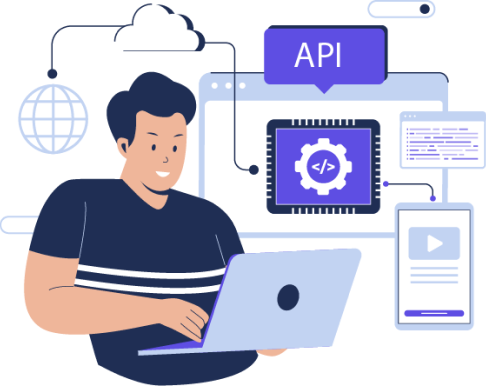Open Data Product Specification
Powering Reuse, Revenue, and Rapid Productization



ODPS is designed for both open and commercial data products, enabling scalable governance, monetization, and AI-native integration — all through a modular, machine-readable YAML specification. Whether you're offering public sector open data or building monetized data APIs, ODPS provides a standardized structure to define and manage your data products. With support for twelve flexible pricing plan templates, organizations can easily adapt to freemium, subscription, enterprise licensing, or usage-based models.
ODPS 4.1 introduces Product Strategy linking data product KPIs to shared business objectives. Together with in-spec referencing for SLAs, Data Quality, Access, and Pricing Plans, it enables measurable, outcome-driven governance and consistent, reusable metadata across large-scale data ecosystems.
The specification embraces a computational, Everything-as-Code philosophy. Data quality rules, SLAs, pricing enforcement, and contract logic can all be automated and integrated into modern workflows. ODPS supports leading platforms such as Stripe, Checkout.com, PayPal, SodaCL, Monte Carlo, DQOps, and Prometheus — making it compatible with both technical operations and business processes.
Hosted by the Linux Foundation since May 14th, 2024, ODPS is a vendor-neutral, open-source initiative built to reshape how organizations govern, share, and monetize data. Its core mission is to provide a machine-readable, modular, and extensible specification that makes data products interoperable, governable, and AI-ready by design.

 Vendor-neutral
Vendor-neutral Machine-readable
Machine-readable
 Related use cases
Related use cases
 Data Contracts support (DCS and ODCS)
Data Contracts support (DCS and ODCS)
 Extendable
Extendable
 Localization (Multilingual support)
Localization (Multilingual support)
 Data Quality (SocaCL, MonteCarlo, DQOps)
Data Quality (SocaCL, MonteCarlo, DQOps)
 Computational (Everything as Code)
Computational (Everything as Code)
 Licensing attributes
Licensing attributes
 Component-based
Component-based
 Related Products
Related Products
 Pricing Plans (Stripe, Checkout, Paypal)
Pricing Plans (Stripe, Checkout, Paypal)
These features highlight the versatility, accessibility, and comprehensive capabilities of ODPS in managing and sharing data products.
Don't just take our word for it—hear from the many organizations and professionals who have transformed their data strategies with the Open Data Product Specification (ODPS). Our users consistently highlight the value of ODPS in breaking down data silos, boosting collaboration, enhancing data monetization, and driving business growth.
Here's what some of our satisfied users have to say about their experience with ODPS:
We'd love to hear your story! Share your insights and let us know how ODPS has made a difference for
you.
Your experiences can inspire others and help us enhance our offerings.
The Open Data Product Specification (ODPS) provides a structured approach to creating, managing, and utilizing data products. Below is a summary of the various versions of ODPS, highlighting their release dates, descriptions, and links to specifications, schemas, and source files.
The latest production version, ODPS 4.1 (October 24th, 2025), extends the Medallion Architecture with improved component layers for SLAs, Data Quality, Access, and Pricing Plans, and adds a new Product Strategy object linking data product KPIs to business objectives for measurable, outcome-driven governance.

Open Data Product Specification 4.1 (latest)
 Release date : 24th Oct 2025
Release date : 24th Oct 2025
 Description: Production
Version 4.1
Description: Production
Version 4.1 Specification: See the full specification.
Specification: See the full specification. YAML Schema: YAML Schema.
YAML Schema: YAML Schema. JSON Schema: JSON Schema.
JSON Schema: JSON Schema. Source: See the source
files.
Source: See the source
files. Issues: See the
issues.
Issues: See the
issues. ODPS OpenAI GPT:
Experimental ODPS GPT. Helps author YAML for Open Data Product Specification with live output
ODPS OpenAI GPT:
Experimental ODPS GPT. Helps author YAML for Open Data Product Specification with live output Knowledge Base: Our HowTo collection with YAML examples,
FAQ and more.
Knowledge Base: Our HowTo collection with YAML examples,
FAQ and more. Udemy MasterClass: Master the Leading Data Product Specification with GPT tool
Udemy MasterClass: Master the Leading Data Product Specification with GPT toolOpen Data Product Specification - Development version
 Release date : Continuous
preview to future releases
Release date : Continuous
preview to future releases Description: Development
version (dev) is for the development which aims for the next released version. Add your
needs to this version, unless it's a bug in previous versions. In those cases, use issue
lists of the version.
Description: Development
version (dev) is for the development which aims for the next released version. Add your
needs to this version, unless it's a bug in previous versions. In those cases, use issue
lists of the version. Specification: See the full specification, development
version.
Specification: See the full specification, development
version. Source: See the source
files.
Source: See the source
files. Issues: See the
issues.
Issues: See the
issues.Open Data Product Specification 4.0
 Release date : 24th July 2025
Release date : 24th July 2025
 Description: Production
Version 4.0
Description: Production
Version 4.0 Specification: See the full specification.
Specification: See the full specification. YAML Schema: YAML Schema.
YAML Schema: YAML Schema. JSON Schema: JSON Schema.
JSON Schema: JSON Schema. Source: See the source
files.
Source: See the source
files. Issues: See the
issues.
Issues: See the
issues. Knowledge Base: Our HowTo collection with YAML examples,
FAQ and more.
Knowledge Base: Our HowTo collection with YAML examples,
FAQ and more.Open Data Product Specification 3.1
 Release date : 27th Nov 2024
Release date : 27th Nov 2024
 Description: Production
Version 3.1
Description: Production
Version 3.1 Specification: See the full specification.
Specification: See the full specification. YAML Schema: YAML Schema.
YAML Schema: YAML Schema. Source: See the source
files.
Source: See the source
files. Issues: See the
issues.
Issues: See the
issues.
Your playbook for defining, governing, and launching data products—now made practical. Dive into real-world guidance, clear documentation, and step-by-step examples that help you move beyond theory and into execution.
Explore ODPS Examples to see how industry leaders structure and deliver ODPS-compliant data products. Whether you’re new to data product management or ready to level up your workflow, you’ll find everything from YAML templates to FAQ-backed use cases designed to accelerate your journey.
The following use cases can be addressed by various vendor-specific and isolated solutions. While these isolated solutions have their merits, the Open Data Product Specification (ODPS) is a comprehensive, full-stack data product model that provides solutions for all these use cases in a single, unified package.
Increase Internal Transparency and Data Reuse
Many organizations struggle
with internal data silos, limiting data sharing and collaboration. A Harvard Business Review
study shows that companies treating data like a product reduce time to implement new use
cases by up to 90% and decrease costs by up to 30%. ODPS breaks down these silos with a
transparent, machine-readable metadata model, enhancing data discovery, comparison, and
reuse across business units.
 Provides a business-level data product
description model with 120+ attributes.
Provides a business-level data product
description model with 120+ attributes. Supports adding use case examples and linking
related data products.
Supports adding use case examples and linking
related data products. Defines data access with 9 attributes, enabling
easier data discovery and usage.
Defines data access with 9 attributes, enabling
easier data discovery and usage.

Boost Sales by Highlighting Data Value
Data monetization often fails
because customers don't perceive value before purchasing. ODPS improves customer experience
by detailing data quality, usage conditions, governance, and alternatives. It offers a
comprehensive framework to convey the data product's value clearly, supporting informed
purchasing decisions.
 Includes 12 pricing plans, including freemium,
to allow value validation.
Includes 12 pricing plans, including freemium,
to allow value validation. Provides a data quality framework with 8
indicators to build trust.
Provides a data quality framework with 8
indicators to build trust. Offers a licensing model with 21 items to
communicate conditions and rights.
Offers a licensing model with 21 items to
communicate conditions and rights.Facilitate Data Product Team Collaboration
Transitioning to a
data-as-a-product approach changes team structures and responsibilities, requiring
cross-disciplinary collaboration. ODPS provides a standardized model to unify business,
technical, marketing, security, and legal efforts, facilitating effective collaboration and
reducing the need for custom solution
 Contains attributes for licensing, pricing, and
governance.
Contains attributes for licensing, pricing, and
governance. Supports marketing with detailed descriptions
and value propositions.
Supports marketing with detailed descriptions
and value propositions. Enables automation with DataOps attributes and
standard access definitions.
Enables automation with DataOps attributes and
standard access definitions.

Advance Open Data to the Next Level
Traditional metadata standards like
DCAT are insufficient for the modern data marketplace. ODPS extends DCAT to support both
open and commercial data, improving discoverability, quality, and monetization
opportunities.
 Offers an 8-indicator data quality framework and
SLA specifications.
Offers an 8-indicator data quality framework and
SLA specifications. Supports open data monetization with pricing
plans and licensing flexibility.
Supports open data monetization with pricing
plans and licensing flexibility.Ensure Consistency with Linting
ODPS enables automated linting to
maintain consistent "look and feel" across data products, improving maintenance and user
experience. A machine-readable specification allows organizations to apply design guidelines
effectively.
 Facilitates early error detection and compliance
with design standards.
Facilitates early error detection and compliance
with design standards.

Enrich API Access with Business Metadata
ODPS integrates business
metadata into API specifications, providing a comprehensive view of data products, enhancing
usability, and supporting multiple languages for broader audience reach.
 Provides a standardized framework for API
descriptions with business metadata.
Provides a standardized framework for API
descriptions with business metadata.Prototyping and Mocking for Product-Market Fit
ODPS enables rapid
prototyping and mockups, allowing businesses to test product-market fit before full
development. It supports A/B testing and customer feedback gathering, minimizing waste and
guiding development.
 Allows easy generation of product views and
supports iterative testing and feedback loops.
Allows easy generation of product views and
supports iterative testing and feedback loops.
We want to hear from you! Share your insights with us, and let's collaborate to transform your vision
into reality.
Your feedback could lead to exciting new possibilities!
At Open Data Product Specification (ODPS), our development is driven by a governance model that aligns with the Linux Foundation's principles of openness and collaboration. As an open-source initiative, ODPS is built on transparency, inclusivity, and community-driven innovation.
Technical Steering Committee (TSC) is open to all—inviting developers, data experts, and organizations worldwide to contribute, share insights, and shape the future of data management. Whether you're a seasoned professional or just starting your journey, your voice and expertise are valued here.
Be part of a growing community dedicated to creating the next generation of data product standards. Join ODPS Community Discord by sending an intro message who you are and why you are interested to join and help drive the future of data products forward!

Subscribe to our blog for the latest updates, best practices, and insights about data products and ODPS.